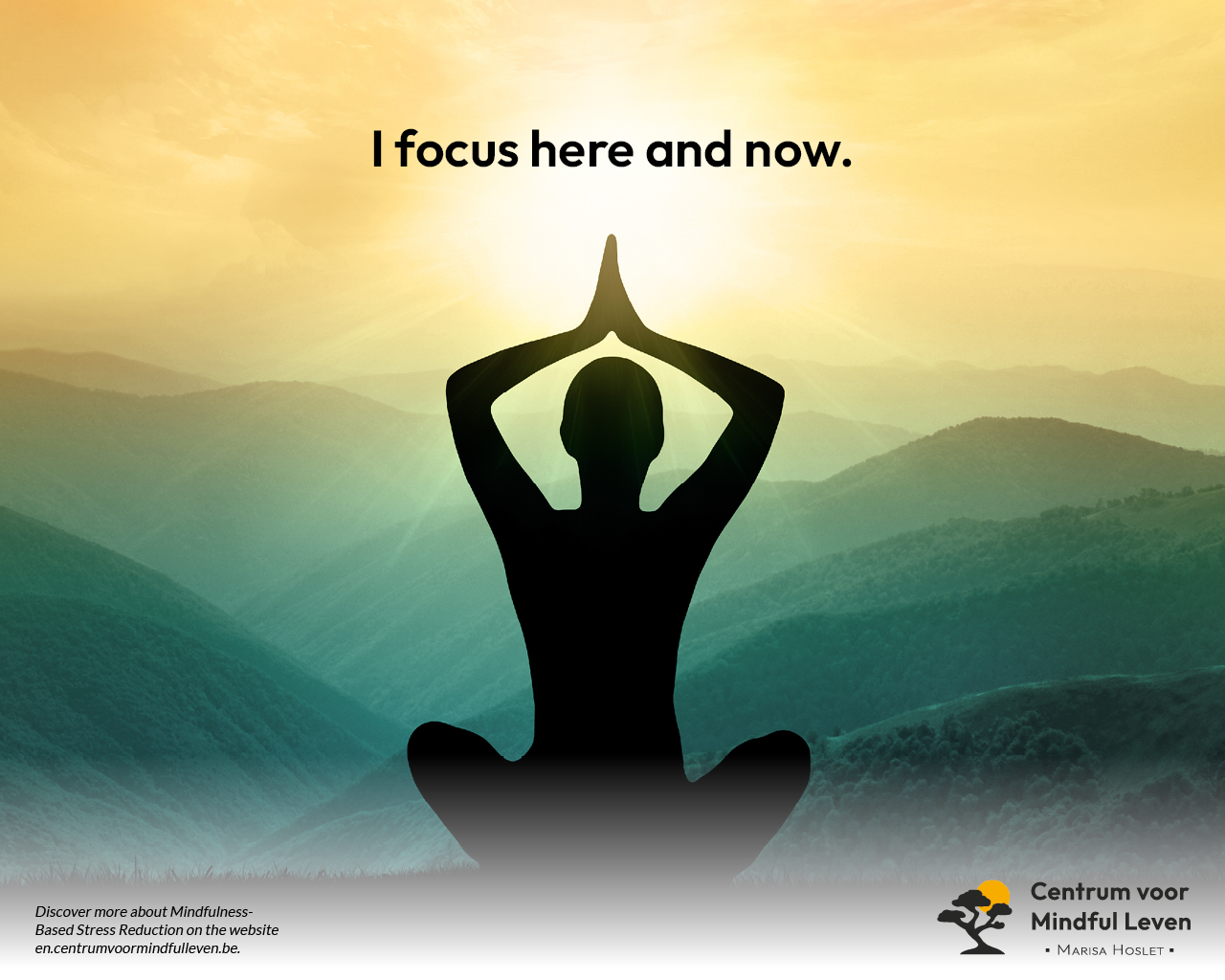There is so much negative news lately: the war in Ukraine, corona cases increasing again, bad weather…. For some people, these things are additional stressors and lead to feelings of fatigue. In this blog, we give some tips that can help you tackle stress and fatigue. The tips are based on the principles of MBSR.
Set boundaries and structure your day
“Stress: the feeling you get when your guts say ‘no’ while your mouth says ‘yes, with pleasure,'” is a quote from author Dick Francis. Indeed, getting overwhelmed by our to-do list can lead to stress. Setting boundaries is the message! But while this may seem simple, the opposite is usually true.
And we’re not just talking about saying “no” when something doesn’t feel right or it all gets a little too much. Equally important is limiting the hours we spend on certain activities, such as work.
For example, it is very important to take regular breaks. It is best to build structure into your days and make enough time for relaxing activities. This is particularly important when you work from home, where there is by default less structure. Some tips:
- Plan three activities in the following week that can relax you: go for a short walk, watch a movie, go swimming…
- Make time for exercise and meditation, for example every morning or every evening. Make a schedule for this. Mindful yoga is a basic element of MBSR and very beneficial. Jon Kabat-Zinn talks about it extensively in the article ‘mindful yoga movement and meditation’. You can also alternate and do meditation one day and yoga the next, for example.
- If meditating, sports or certain movement exercises such as yoga do not immediately appeal to you and/or are not feasible, you can also create a schedule for your daily household tasks and do those consciously with focused attention. For example, mopping the hallway, working in the garden, painting a room …
- The cell phone wallpapers, posters and screensavers from the Center for Mindful Living can help to remind you to take mindful breaks, for example while working or when you are distracted by your cell phone.
- Go to sleep and get up at fixed times. If you are very tired lately, you could go to sleep an hour earlier during a certain period of time. Keep in mind that on average, we need 8 hours of sleep.
Pick your thoughts more consciously
Many people have been worrying a lot lately, for example about the war in Eastern Europe and the economic consequences, such as the price increases. Occasional fretting is normal, of course. But what often happens to people with a tendency to over-worry is that they see their thoughts as reality and get caught up in vicious circles. This can have not only mental, but also physical consequences.
 Of course, it is not always easy to stop our train of thought and detach from it, especially in times of stress and pressure. Some concrete tips:
Of course, it is not always easy to stop our train of thought and detach from it, especially in times of stress and pressure. Some concrete tips:
- Try to carve out time to meditate. Through meditation, we learn to observe thoughts. We learn that thoughts are thoughts and do not necessarily correspond to reality. This can provide an inner sense of freedom, peace and serenity, and the feeling of being liberated from the influence of thoughts. A very good meditation to practice at the moment is this 20-minute guided meditation by Jon Kabat-Zinn.
- Try to enjoy the little things in life. A student in an ongoing course noticed that he feels happier since he pays more attention to the beauty that is hidden in small things. You can read his full testimony here. Another example is the way mindfulness – more specifically, mindful coping with thoughts – helped my father in dealing with his incurable illness, from which he eventually died. It’s an inspiring example of the fact that enjoying life is possible, even in difficult times. You can read the full story here.
- Use the cell phone wallpapers, posters and screensavers of the Center for Mindful Living as reminders to take a mindful stop moment.
- Distancing yourself from your brooding thoughts is something you can learn. There are several techniques and activities that can help you do this, such as the G-schedule. You can find several in the book “Mijn Pöp-Up Brein” by Els Ockers, a former course attendee. This book was written to support people with multiple sclerosis and the MS-Liga. In one section, Els talks about her experiences with the MBSR introduction course and the theme of worrying.
Minimize distractions and use online channels consciously
Watching a movie, talking about what’s on your mind with a friend, family member or psychologist, exercising or moving (yoga, walking, cycling…), taking breaks… Relaxing activities can be very useful in decreasing your stress levels. Unfortunately, many people tend to reach for their cell phone during these moments, which actually increases their stress levels. This is why it’s important to keep distractions to a minimum and to actually relax during a moment of relaxation. Some tips:
- Put your cell phone out of reach when you relax, so you can’t be on social media or read (online) news.
- When reading online news, choose one or maximum two very good information channels and limit yourself to those.
- Don’t constantly chat with a lot of people in your contact list, but limit your online contacts.
- Do you tend to scroll aimlessly on Instagram, TikTok or Facebook? Ask yourself what motivates you to do so, keep this to a minimum, and in any case, make sure you only follow accounts that inspire you and make you feel positive. Unfollow all other accounts.
MBSR workshops
The information in the previous paragraphs is based on the principles of MBSR and is also included in the group workshops you can attend at the Center for Mindful Living. Note that we are always adapting our workshops to the most recent scientific findings and the present circumstances. Scientific research has shown that following such an MBSR workshop is very effective. Some examples:
- In my own thesis (2007), a study in collaboration with the UGent, it was shown that practicing Mindfulness-Based Stress Reduction has a significant impact on coping with anxiety, depression and the quality of life in people with CFS. Read this thesis here. At the end you’ll find a literature list with lots of interesting books on mindfulness, for a broad audience.
- In a recent study at the VUB in collaboration with the Doctoral Schools, PHD students that participated in this research remarked a significant improvement, even one month after following the course.
Would you like to enroll in an MBSR course? The next series starts on May 7. More info can be found on the page ‘8-Week MBSR Program’. Contact us for more information, or if you would like to attend a course or set up an appointment for an introduction.



